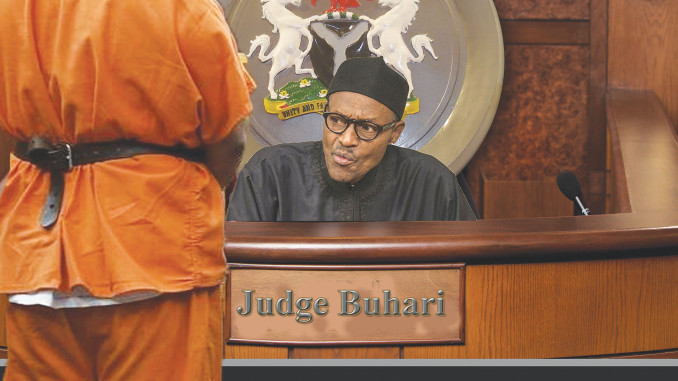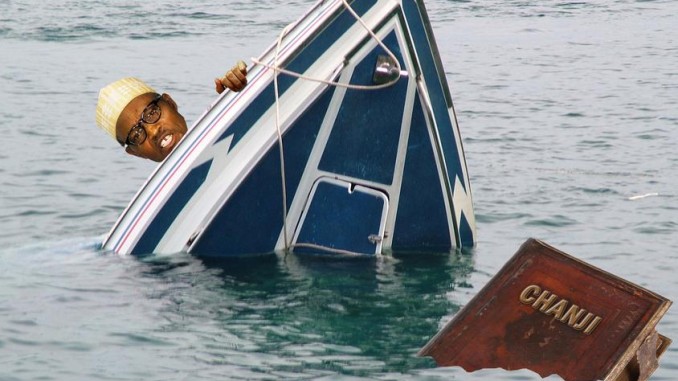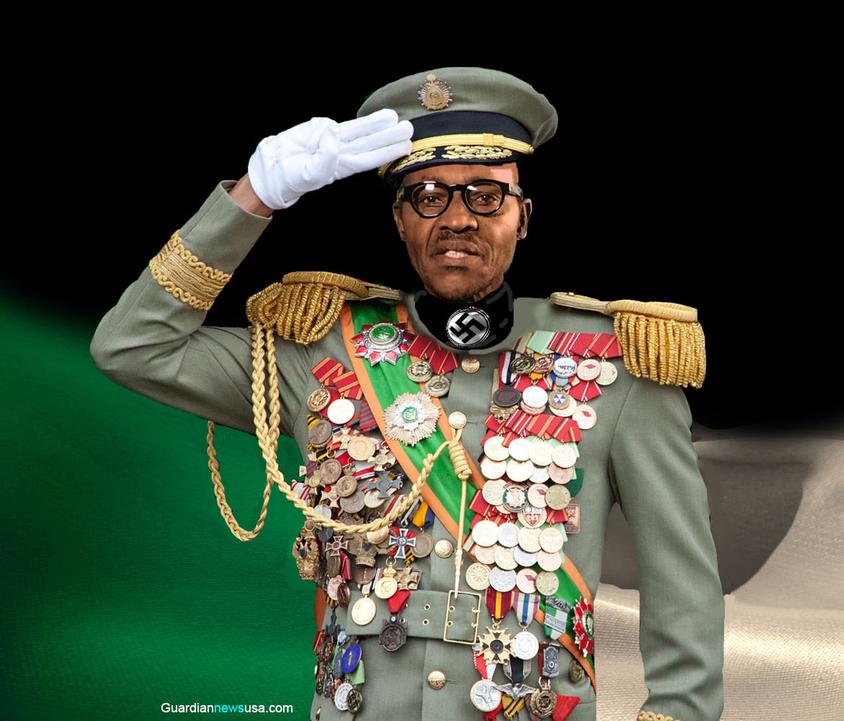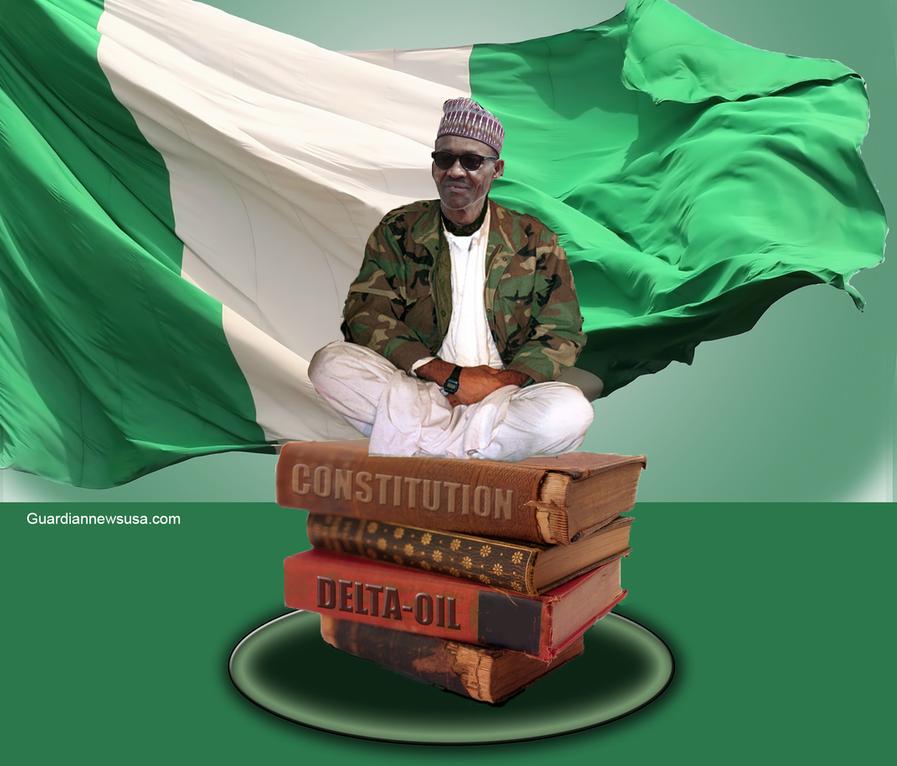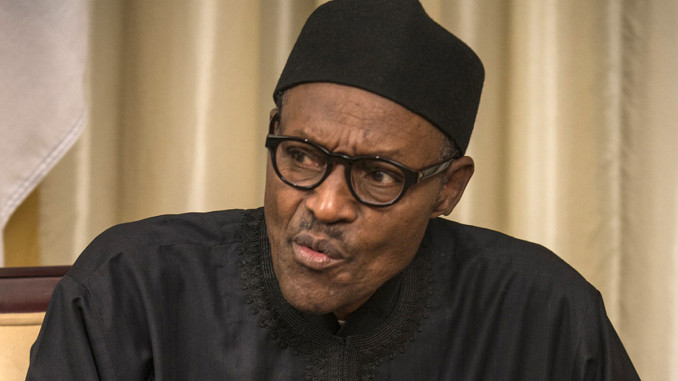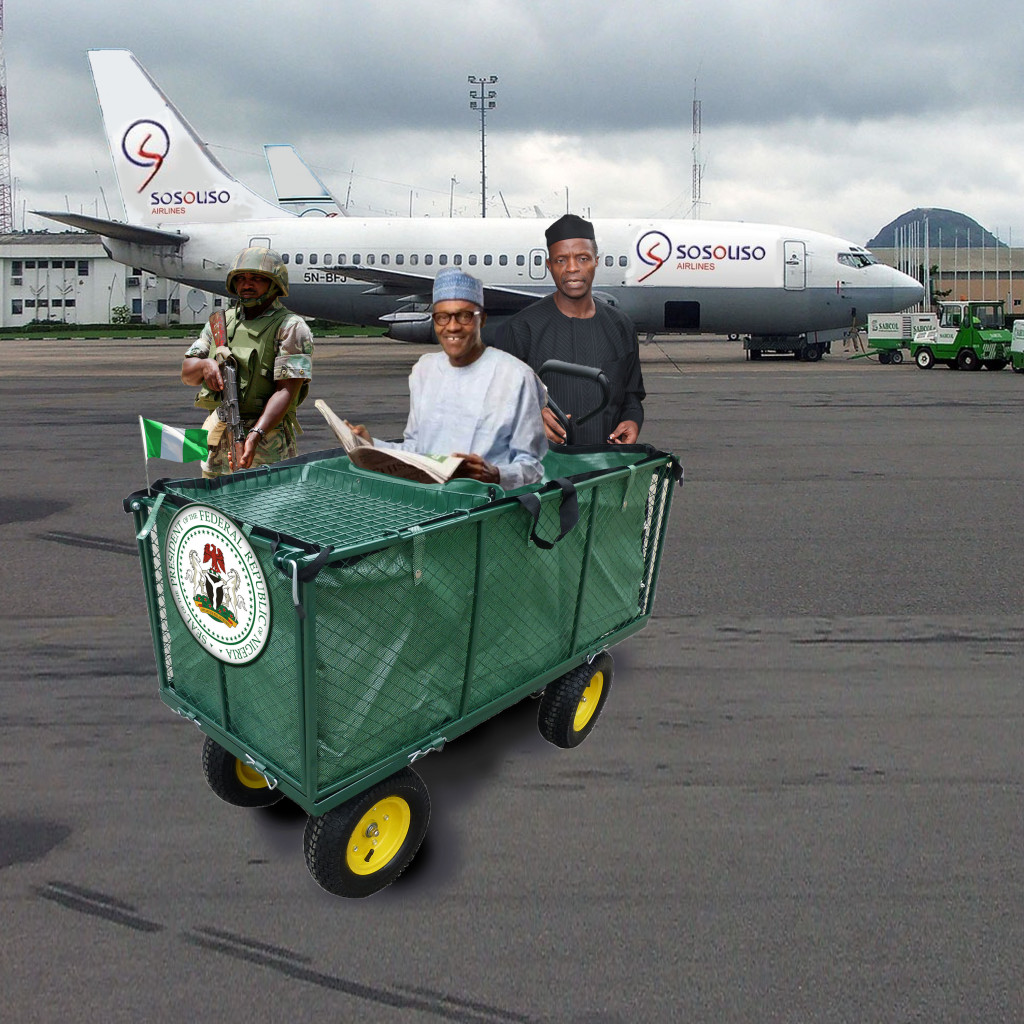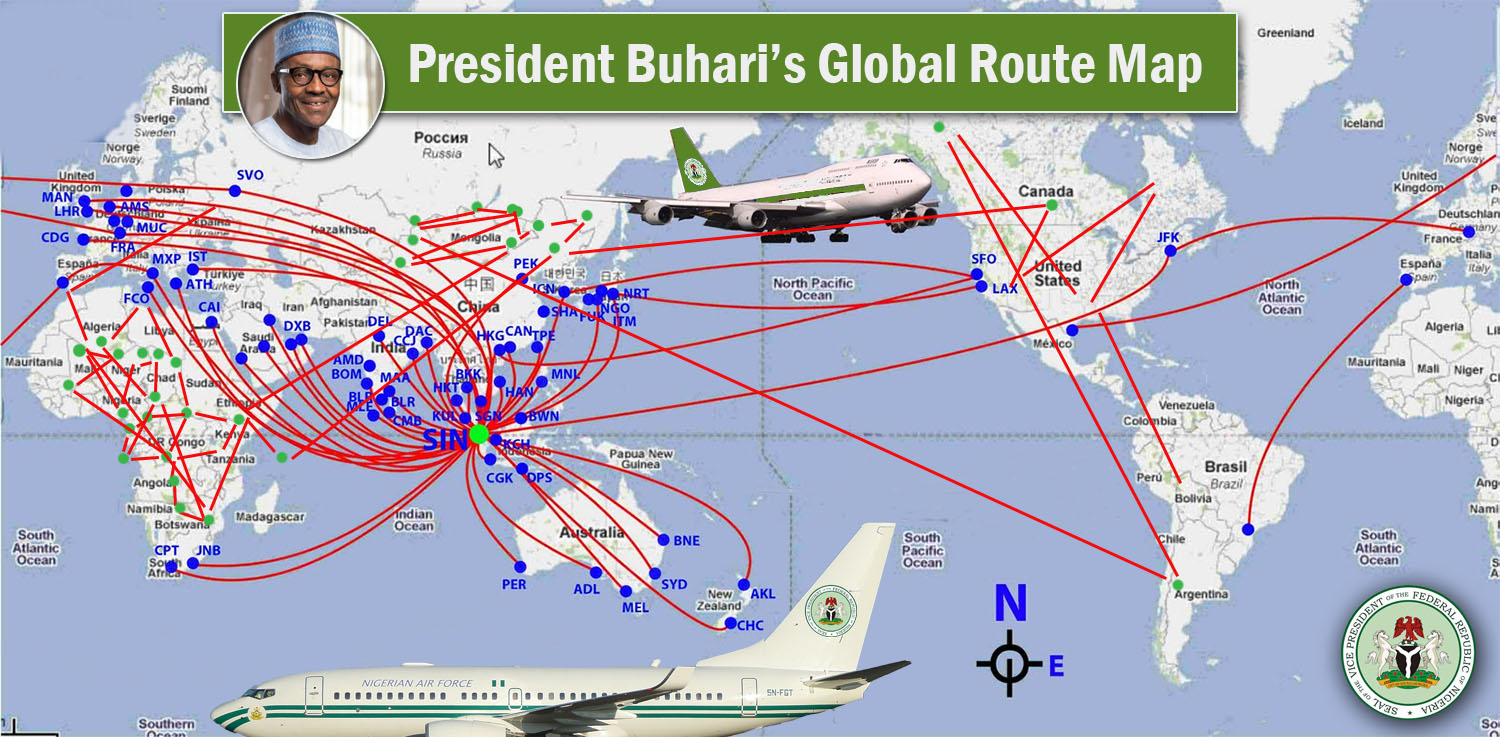
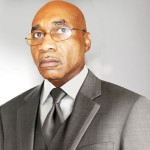
President Buhari’s penchant for flying around, it may be recalled, started when he was a presidential candidate of the All Progressive Congress (APC). Today, as president, Buhari consistently has been hooked on his presidential jet, trotting the globe, and making official stopover calls to just about any foreign city that has an airport; and taking photos with any foreign public officer or leader that cared. So what does this mean to a country currently overwhelmed by a burden of economic and political adversities?
Here is a Commander-in-chief who chooses to remain on the air making rounds of unsubstantiated escapades while his country’s security system remains in unexplained tatters. In the North where President Buhari hails from, casualties of suicide bombings are a horrific trend, while communal mobility is grounded for scarcity of fuel. Ever since Mr. President made himself the overseer of the Petroleum Minister, the Nigeria’s oil and gas industry has gone in a terrible coma; contractors wander around a blind system whereas motorists struggle in vain to buy petrol.
Within this prevailing devastation, here is Garba Shehu, Senior Special Assistant to President Buhari on Media and Publicity, responding to his travelling obsession:
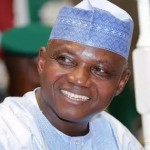
“President Muhammadu Buhari came into office under the mantra of change. While Nigerians are yearning for change, you need someone who will set up the infrastructure, both at home and abroad for it. President Buhari is busy doing that. The change is manifest in where he visits and what he does.”
This again is where President Buhari’s handlers got it wrong – an inability to differentiate between effective foreign policy and aimless foreign excursions. Foreign policy is basically a government’s strategy in dealing with other nations. Buhari, since his inauguration had shuttled Islamic countries to show appreciation to foreign Muslim leaders who secretly funded his campaign. He had equally made unreported trips for medical reasons; whereas other trips were aimlessly planned and yielded nothing but photos albums for social media campaign – so how does change manifest from this documentary of unreasonable oversea trips?
Nigerians who initially supported this president expected that his trips would have galvanized foreign assistance and collaboration to defeat the Boko Haram overpowering insurgency. Unfortunately, President Buhari’s trips are unproductive while he exaggerated his military’s success against the terror group, claiming they had long been defeated. But the group are an intractable agony, executing their butcheries with little or no challenge from the government forces. Just a week ago, 24 worshipers were killed and 18 were wounded after two female suicide bombers detonated explosives inside a mosque.
The major question is on how Buhari’s voyage addiction would translate to effective foreign policy. The foreign policy process is very diplomatic and must galvanize power to protect and project Nigeria’s global interests – not create a forum for several trips, executive dinners, and fanfares. President Buhari must seek diplomatic interests with the appropriate countries to strategically create opportunities to solve his country’s surmounting issues on security, economy, and a continued derail of the social system. Consequently, he should collaborate with global leaders passionate about uniting the country rather than his current foreign cronies – some controversial sectarian extremists unconcerned about a peaceful Nigeria.

